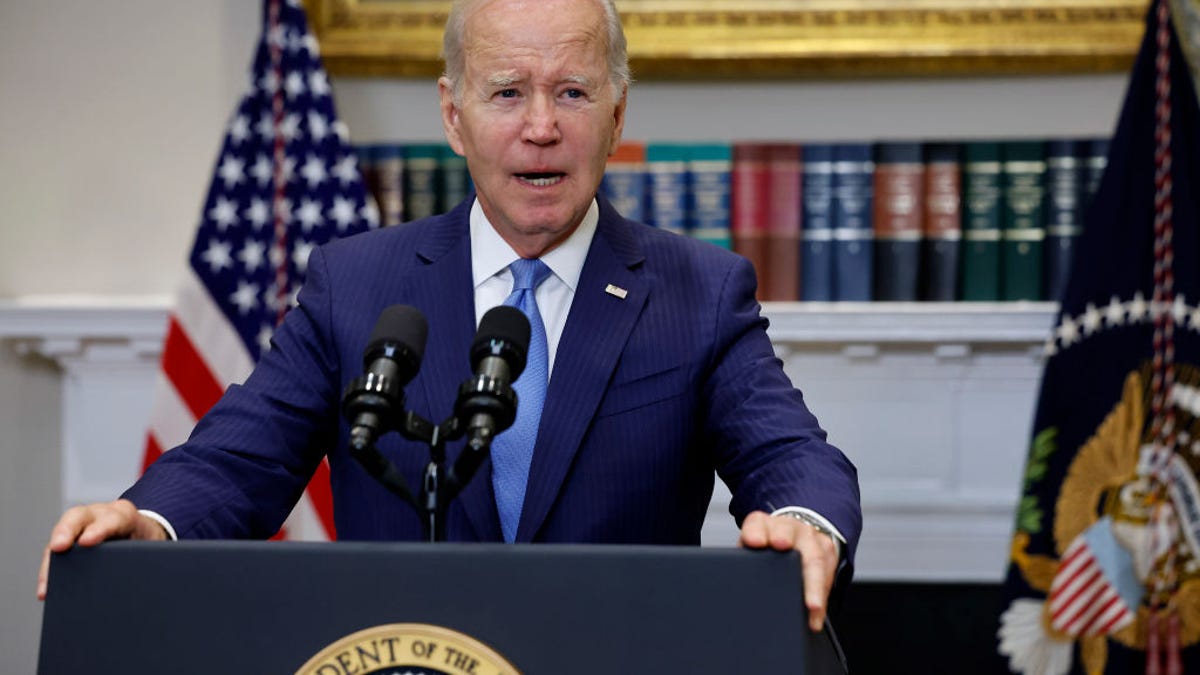Biden Vetoes Bill Blocking Waiver for Solar Panel Tariffs
The White House says the exemptions allow foreign manufacturers to fill the gap while US companies ramp up production.

President Joe Biden vetoed efforts to restore tariffs on solar panels manufactured in Asia.
US President Joe Biden vetoed legislation Tuesday that would have restored tariffs on solar panels from Southeast Asia.
The White House said the veto, only the third in Biden's presidency, will help maintain the supply chain as solar installations -- and domestic solar panel production -- ramp up in the US.
In June 2022, the White House granted 24-month waivers exempting duties on panels made in Malaysia, Cambodia, Vietnam and Thailand. Imports from those countries account for roughly 80% of solar panels used in the US, Reuters reported.
Can solar panels save you money?
Interested in understanding the impact solar can have on your home? Enter some basic information below, and we’ll instantly provide a free estimate of your energy savings.
The Trump administration imposed the tariffs in 2018, contributing to a supply chain shortage that led to hundreds of solar projects being delayed or canceled outright, according to the Solar Energy Industries Association, or SEIA, an industry lobbying group.
Some 20% of planned solar projects were delayed in the first half of 2022, according to a report from the Energy Information Administration.
A resolution passed by Congress this month with bipartisan support would have reinstated those duties, which sponsors say are necessary to keep America's solar industry competitive.
"Every day that this rule is in effect, the Chinese Communist Party gets closer to dominating the solar market," said Rep. Bill Posey, the Florida Republican who introduced the bill.
But the White House insists the exemptions help domestic manufacturers get up to speed.
Read more: US-Made Solar Panels Get an Extra Tax Credit – if You Can Find Them
"[They] make sure that when these new factories are operational, we have a thriving solar installation industry ready to deploy American-made solar products to homes, businesses, and communities across the nation," Biden said in a statement Tuesday.
He added that he does not intend to renew the waivers when they expire in June 2024.
Read more: How Much Do Solar Panels Cost?
A Commerce Department investigation last year suggested at least four Chinese solar panel manufacturers were trying to skirt the tariffs illegally by completing production in other countries.
"The Biden administration found, in its own investigation, that Chinese companies are violating the law," Rep. Dan Kildee of Michigan, another co-sponsor, said in a statement. "Yet the president's position, and today's veto, fails to hold China accountable and hurts American workers."
Overriding the veto would require a two-thirds majorities in both the House and Senate, a level of support that proponents don't appear to have, Reuters reported.
The SEIA said that reinstating the tariffs would stall development and lead to the loss of an estimated 30,000 jobs.
In a statement, the association's CEO, Abigail Ross Hopper, called Biden's veto "a reaffirmation of the administration's commitment to business certainty in the clean energy sector."
Read on: Biden Administration Provides Over $3 Billion for Rooftop Solar Accessibility


